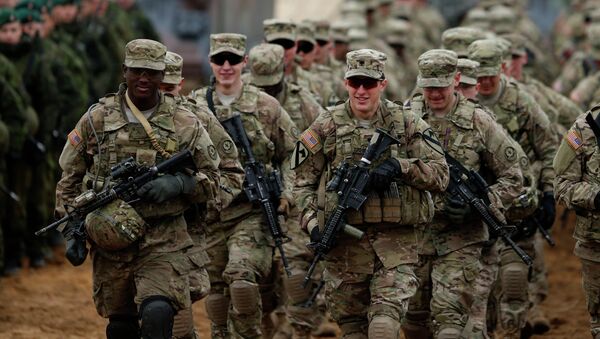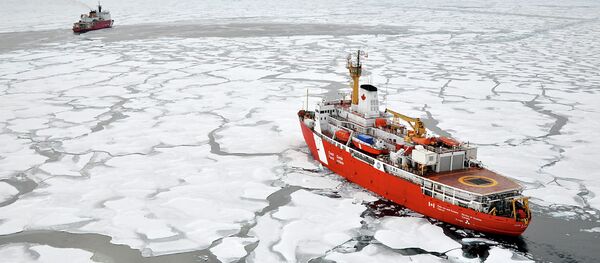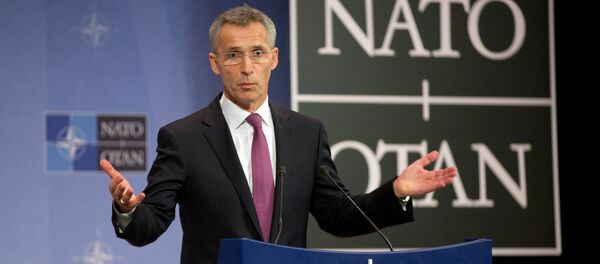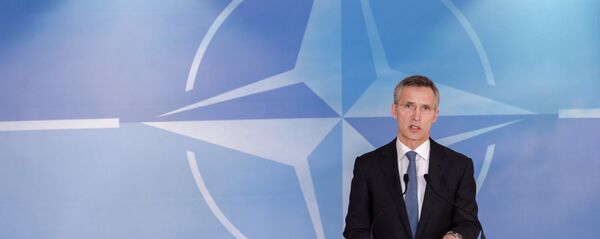WASHINGTON (Sputnik) — Washington will use military force unilaterally if US citizens or the country’s allies are in danger, according to US National Security Strategy released by the White House.
"The United States will use military force, unilaterally if necessary, when our enduring interests demand it: when our people are threatened; when our livelihoods are at stake; and when the security of our allies is in danger," the document said.
"Working with the Congress, we will train and equip local partners and provide operational support to gain ground against terrorist groups," the document read. "This will include efforts to better fuse and share information and technology as well as to support more inclusive and accountable governance."
"We [the United States] face continued challenges, including political dysfunction in Washington that undermines national unity, stifles bipartisan cooperation, and ultimately erodes the perception and strength of our leadership abroad."
Washington would prefer to act with allies and partners, as the threshold for military action is higher when US interests are not directly threatened, the document explained.
"In such cases, we [the United States] will seek to mobilize allies and partners to share the burden and achieve lasting outcomes," the strategy read.
The new strategy said, however, that the United States would be principled and selective in the use of force.
"The use of force should not be our first choice, but it will sometimes be the necessary choice."
According to the document, the US will strive to help countries consolidate their gains and move toward more democratic and representative systems of governance, including through "building relationships with the world’s young people, identifying future leaders in government, business, and civil society and connecting them to one another and to the skills they need to thrive."
"To lead effectively in a world experiencing significant political change, the United States must live our values at home while promoting universal values abroad."
"We are committed to advancing the Prague Agenda, including by stopping the spread of nuclear weapons and securing nuclear materials," the National Security Strategy read.
"NATO is stronger and more cohesive than at any point in its history, especially due to contributions of the Nordic countries and newer members like Poland and the Baltic countries."
The United States will reassure its allies by backing their "security commitments and increasing responsiveness through training and exercises, as well as a dynamic presence in Central and Eastern Europe to deter further Russian aggression," according to the revised strategy.
The United States will cooperate with its partners to diminish the potential of energy-related conflict in the Arctic and Asia, according to the new US National Security Strategy released on Friday.
The US will work with European partners on energy security and diversification away from Russian energy supplies, the document says.
"The challenges faced by Ukrainian and European dependence on Russian energy supplies puts a spotlight on the need for an expanded view of energy security that recognizes the collective needs of the United States, our allies, and trading partners as well as the importance of competitive energy markets. Therefore, we must promote diversification of energy fuels, sources, and routes, as well as encourage indigenous sources of energy supply," the National Security Strategy read.
According to the document, the US will support Georgian, Moldovan, and Ukrainian efforts to improve their cooperation with NATO.
The United States will reassure its allies by backing their “security commitments and increasing responsiveness through training and exercises, as well as a dynamic presence in Central and Eastern Europe to deter further Russian aggression,” according to the revised strategy.
The US will continue to impose considerable costs on Russia using sanctions and other means, according to the new US National Security Strategy released on Friday.
"We will continue to impose significant costs on Russia through sanctions and other means."
However, the United States will keep the door open to greater collaboration with Russia in areas of common interests, if it chooses "a path of peaceful cooperation."
The announcement came as NATO has increased its activities in Eastern Europe amid alleged Russian involvement in the Ukraine crisis.
As part of its "Readiness Action Plan," NATO has increased the number of fighter jets patrolling the skies of the Baltics, sent more ships to European waters, and deployed ground troops to the Alliance’s eastern reaches for training and exercises, according to a statement on NATO’s website.
On Thursday, NATO defense ministers are scheduled to discuss the action plan, including the size of a new rapid deployment force «of several thousand ground troops supported by air, maritime and special forces able to deploy within a few days," the NATO statement said, adding that it plans to have the force ready by 2016, according to the statement.









